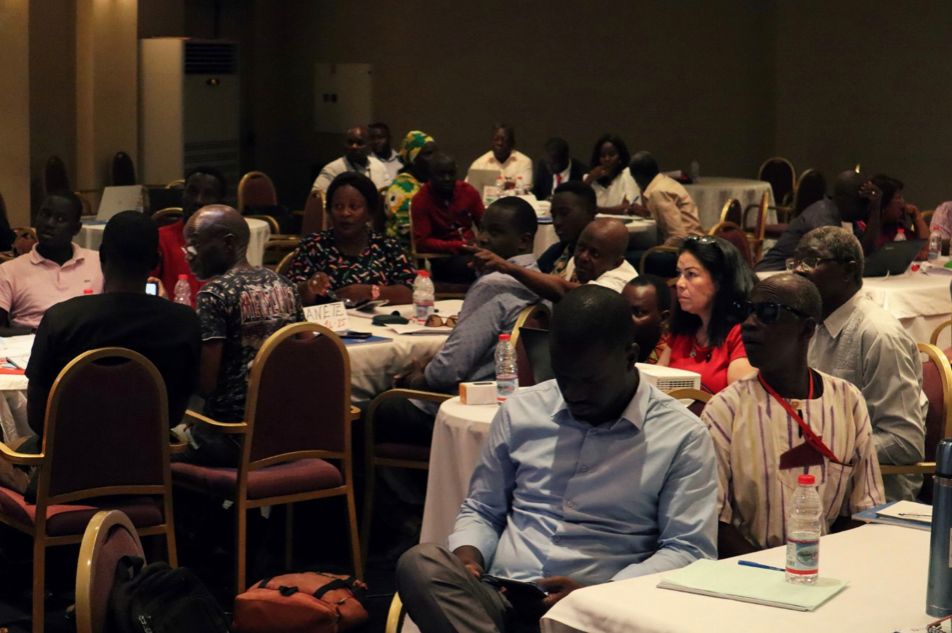Guinea-Bissau’s First Voluntary National Review: the Result of a Collective Dialogue Process
June 20, 2022

VNR Collective Dialogue Process
Guinea-Bissau is one of the last African countries to present their first Voluntary National Review (VNR). “It is never too late”, says UNDP Deputy Representative José Levy, “and the discussions have served a purpose”. The report is expected to show what steps the country has taken to implement the 2030 Agenda, including the goals, targets, and indicators, as well as provide an assessment of the results on the ground. Re-establishing a new starting point and determining what Guinea-Bissau’s task is for 2030. That is one of the major achievements of an enriching process of exchange and dialogue that will culminate in the public presentation during the next High-Level Political Forum on Sustainable Development (HLPF) to be held in New York in July 2022. The main challenge to building on this achievement is identifying which SDGs require the greatest investment both in financial and human resources.
People, prosperity, planet, peace, and partnerships are the five pillars of the 2030 Agenda on which the discussions and debates have pivoted, building a process that began a year ago with the official inscription of Guinea-Bissau on the list of countries participating in the 2022 voluntary national reviews. The next step was precisely the resumption of the thematic groups which had been previously constituted for the elaboration of the National Development Plan. The Ministry of Economy, Planning and Regional Integration has been leading the whole process with the technical and financial support of UNDP, but other ministries have also been involved. Seynabou Faye de Almeida is Director of the Studies, Planning and International Relations Office of the Ministry of Territorial Administration and Local Government and she has participated in the different consultations that have been held throughout the last few months.
“The preparation of the report has provided us with another instrument to get to know exactly what is happening in the country, what has been done and what remains to be done, the exposition of the problems and challenges and the better way to solve them”, she reflects, “and it is good for the government to become aware of the problems at the local level”.

Both António Có and Khadija Moalla, the consultants leading the process, share that perspective. “The VNR is important because any project under implementation or any ongoing development plan needs evaluation. It will allow us to measure the progress made and the constraints encountered to think about what can be done to change the situation in the coming years”, Có says, “and for that we need to collect data to know where we are”. And that has been the main challenge. “The lack of data has been the main difficulty in finding accurate and up-to-date information. But collectively, working together, we still have been able to compile as much data as we needed to report about the 17 SDGs”, Moalla remarks. During the consultation, indeed, data was collected that would normally be difficult to access. There has been a specific working group for the elaboration of a list of indicators, as each SDG’s indicators were adapted in accordance with the reality of the country. “We extracted them from those that were already aligned with the National Development Plan for the period 2015-2020. Based on this matrix of indicators, we created the indicators for the preparation of this report”, António points out.
From that initial letter to the final validation by the government, the process has had a participatory and inclusive approach. “We wanted to be as inclusive as possible and we achieved this by ensuring that not only government, but also CSOs, the private sector, academia and many other national stakeholders were with us throughout the five workshops where we were able to draft the document together, review it together and validate it at the national level”, says Moalla. Vulnerable groups in the country were also represented at these workshops to ensure that their demands were included in the report's recommendations. The situation of women and children in the country, and specifically the fight against child labour, are some of the issues proposed by the Mindjer Carrus Cooperative to be considered in order to make progress towards achieving the SDGs in Guinea-Bissau. Its president, Fátima Vieira, believes that "we have skilled and capable women who can and should be in the decision-making sphere". For its part, the FADPD/GB through its president Lázaro Barbosa considers that "what the State should have done and did not do was to produce inclusive public policies for persons with disabilities".
These are just some of the unfinished issues in a process, the fulfilment of the 2030 Agenda, which still has some years to go. The next step, now that this first report is practically closed and according to the challenges detected, is to try to create a permanent, more cohesive group, with a concrete plan to avoid future difficulties in the preparation of the following report. From 2025 onwards it will be mandatory for all countries, and, in view of the usefulness of the measurement and evaluation of the data, there is a will to produce more voluntary reports between 2023 and 2025.
Guinea-Bissau is looking forward to the presentation in New York of the results of a collective work that is the fruit of a process of dialogue, in which people from all over the country have had the opportunity to present their priorities, express their concerns and highlight those areas in which it is necessary to work harder to achieve the SDGs and, above all, to improve the quality of life of the population. And UNDP will continue to support this process, which does not end here and will continue until 2030 making sure to leave no one behind.


 Locations
Locations